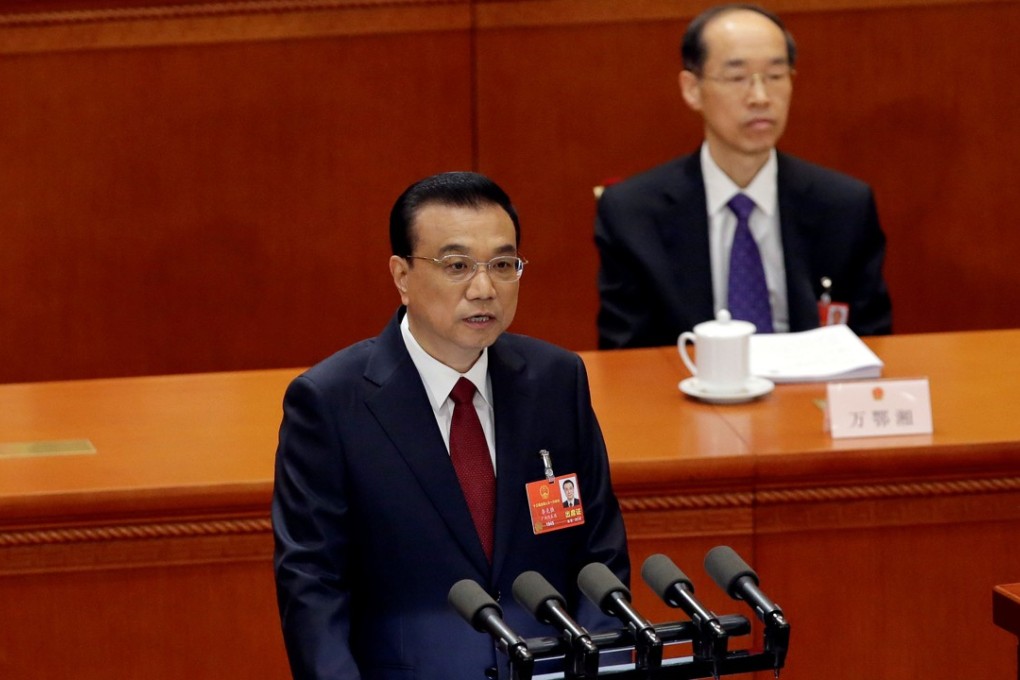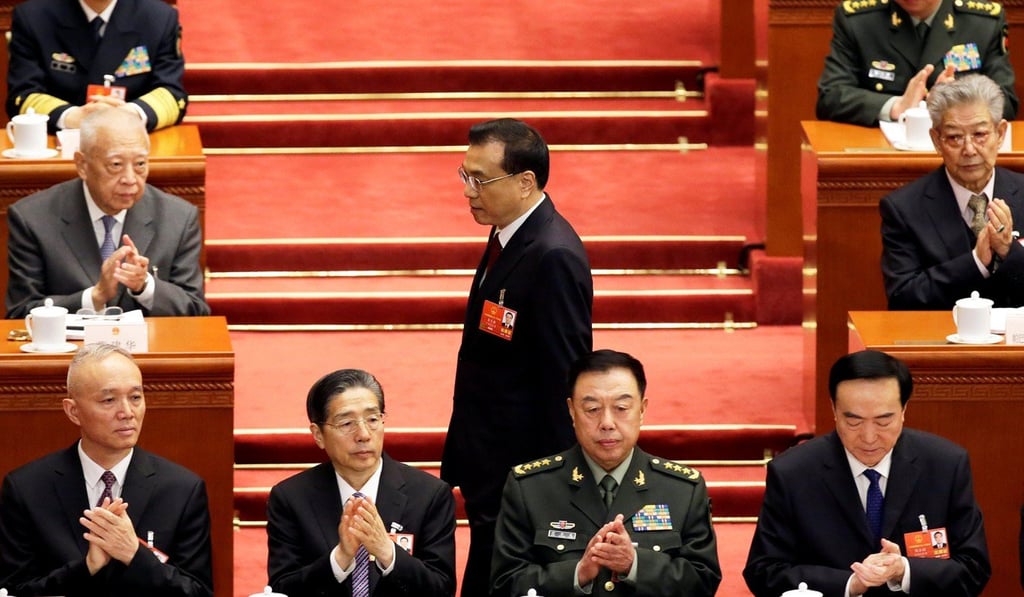Premier Li Keqiang declares China’s hold over Hong Kong is being strengthened, stops short of warning against independence
Delivering annual work report, No 2 state leader pledges full and accurate implementation of ‘one country, two systems’

Premier Li Keqiang has declared that the authority of the country’s constitution and Hong Kong’s mini-constitution have been further realised in the city, vowing full support for its integration into developments on the mainland.
Delivering his work report on Monday at the start of the biggest political meeting of the year, China’s No 2 official also pledged that the central government would fully and accurately implement the “one country, two systems” governing principle in Hong Kong.
However, the state leader did not directly refer to the city’s freedoms under the principle, omitting two references – “Hong Kong people governing Hong Kong” and the city’s “high degree of autonomy”, both of which appeared in his work reports from 2015 to 2017.

In his report, Li listed several of Beijing’s achievements in Hong Kong, Macau and Taiwan.
“Fresh progress has been made in work related to Hong Kong, Macau and Taiwan. The practice of one country, two systems has been consistently enriched and developed,” Li said.